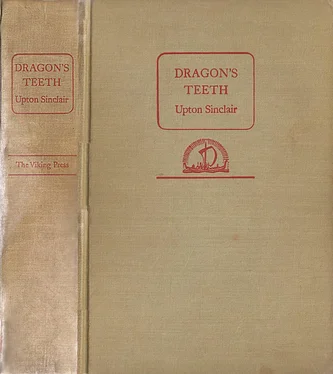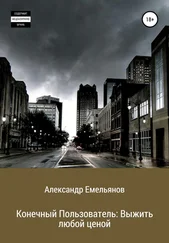Пользователь - o 3b3e7475144cf77c
Здесь есть возможность читать онлайн «Пользователь - o 3b3e7475144cf77c» весь текст электронной книги совершенно бесплатно (целиком полную версию без сокращений). В некоторых случаях можно слушать аудио, скачать через торрент в формате fb2 и присутствует краткое содержание. Жанр: Старинная литература, на русском языке. Описание произведения, (предисловие) а так же отзывы посетителей доступны на портале библиотеки ЛибКат.
- Название:o 3b3e7475144cf77c
- Автор:
- Жанр:
- Год:неизвестен
- ISBN:нет данных
- Рейтинг книги:4 / 5. Голосов: 1
-
Избранное:Добавить в избранное
- Отзывы:
-
Ваша оценка:
- 80
- 1
- 2
- 3
- 4
- 5
o 3b3e7475144cf77c: краткое содержание, описание и аннотация
Предлагаем к чтению аннотацию, описание, краткое содержание или предисловие (зависит от того, что написал сам автор книги «o 3b3e7475144cf77c»). Если вы не нашли необходимую информацию о книге — напишите в комментариях, мы постараемся отыскать её.
o 3b3e7475144cf77c — читать онлайн бесплатно полную книгу (весь текст) целиком
Ниже представлен текст книги, разбитый по страницам. Система сохранения места последней прочитанной страницы, позволяет с удобством читать онлайн бесплатно книгу «o 3b3e7475144cf77c», без необходимости каждый раз заново искать на чём Вы остановились. Поставьте закладку, и сможете в любой момент перейти на страницу, на которой закончили чтение.
Интервал:
Закладка:
marble statues of Hohenzollern heroes, palaces of old-time princes and new-time money-
lords; sumptuous hotels, banks that were temples of Mammon, department stores filled with
every sort of luxury goods—and wandering about the streets, hiding in stone caves and cellars,
or camping out in tents in vacant spaces, uncounted hordes of hungry, ill-clothed, fear-driven,
and hate-crazed human beings. Out of a population of four million it might be doubted if there
were half a million really contented. There was no street where you could escape the sight of
pinched and haggard faces; none without beggars, in spite of the law; none where a well-
dressed man could avoid the importunities of women and half-grown children, male or female,
seeking to sell their bodies for the price of a meal.
Shut your eyes to these sights and your mind to these thoughts. The city was proud and
splendid, lighted at night like the Great White Way in New York. The shop windows were filled
with displays of elegance, and there were swarms of people gazing, and some buying. Tell
yourself that the stories of distress were exaggerated; that the flesh of boys and girls had been
for sale in Nineveh and Baghdad, and was now for sale in London and New York, though
perhaps they used a bit more Anglo-Saxon hypocrisy. Prostitution has been the curse of great
cities ever since they began; swarms of people come piling into them, lured by the hope of easy
wealth, or driven from the land by economic forces which men have never learned to control.
This was something about which Freddi Robin should have been able to speak, he being now
a duly certified Herr Doktpr in the science of economics. He reported that the great
university had left it still a mystery to students. The proper academic procedure was to
accumulate masses of facts, but to consider explanations only historically. You learned that the
three-stage pattern of primitive economic progress as taught by Friedrich List had been
abandoned after the criticisms of anthropologists, and that Roscher's theory of national
economics as a historical category had been replaced by the new historical school of Schmoller.
It was all right for you to know that in ancient Rome the great estates, the latifundia, had been
worked with slave labor, thus driving independent farmers to the city and herding them into
ramshackle five-story tenements which often burned down. But if in the class you pointed out
that similar tendencies were apparent in Berlin, you would be looked at askance by a professor
whose future depended upon his avoidance of political controversy.
To be sure, they were supposed to enjoy academic freedom in Germany, and you might listen
to a Catholic professor in one lecture hall and to a Socialist in the next; but when it came to
promotions, somebody had to decide, and you could hardly expect the authorities to give
preference to men whose teachings fostered that proletarian discontent which was threatening
to rend the country apart. At any rate, that is the way Freddi Robin reported the situation in the
great University of Berlin.
IV
The Budds arrived a week or so before the national elections in September 1930. The city was
in an uproar, with posters and placards everywhere, hundreds of meetings each night, parades
with bands and banners, crowds shouting and often fighting. The tension was beyond anything
that Lanny had ever witnessed; under the pressure of the economic collapse events in Germany
were coming to a crisis, and everybody was being compelled to take sides.
The young people wanted to see these sights. Hansi and Bess must attend a big Communist
gathering the very night of their arrival, and the others went along out of curiosity. The great
hall in the Moabit district was draped with red streamers and banners having the hammer and
sickle in black. Also there were red carnations or rosettes in people's buttonholes. The crowd
was almost entirely proletarian: pitiful pinched faces of women, haggard grim faces of men;
clothing dingy, generally clean but so patched that the original cloth was a matter of
uncertainty, many a man had had no new suit since the war.
The speakers raved and shouted, and worked the crowd into a frenzy; the singing made you
think of an army marching into battle. A quartet sang chants with hammering rhythms, the
repetition of simple words, like lessons repeated by children in school. Lanny translated for his
wife: "Be ready to take over! Be ready to take over!"
Irma had learned a lot about this subject during her sojourn in these two strange families;
she had listened to Uncle Jesse, and to Hansi and Bess arguing with Lanny, and now and then
with Hansi's father. They didn't want to kill anybody—not unless somebody resisted. All they
wanted was to reproduce in Germany what they had done in Russia; to confiscate the property
of the rich and reduce them to their own slum level. Johannes had smiled and said they would
make a museum out of his palace, and that would be all right with him, he would buy another
in London, and then one in New York, and then one in Tahiti—by which time Russia would have
restored capitalism, and he would return to that region and make his fortune all over again.
The financier made a joke of it, but it was no joke at this Versammlung. Not one single laugh
in a whole evening; the nearest to it was mocking jeers, hardly to be distinguished from cries of
rage. This was what they called the "proletariat," the creatures of the slums, threatening to
burst out, overcome the police, and raid the homes of those whom they called "exploiters." The
speakers were seeking election to the Reichstag, where they would pour out the same kind of
tirades. Irma looked about her uneasily, and was glad she had had the sense not to wear any of
her jewels to this place. It wasn't safe anyhow, for the National Socialists often raided the
crowds coming out from Red meetings, and there were rights and sometimes shootings.
V
The Social-Democrats also were holding great meetings. They were by far the largest party in
the Republic, but had never had an outright majority, either of votes or of representation;
therefore they had not been able to have their way. If they had, would they have known what
to do? Would they have dared trying to bring Socialism to the Fatherland? Hansi and Bess
declared that they were paralyzed by their notions of legality; it was a party of officeholders, of
bureaucrats warming swivel-chairs and thinking how to keep their jobs and salaries. They
continued to call themselves Socialist and to repeat the party shibboleths, but that was simply
bait for the voters. How to get Socialism they had no idea, and they didn't consider it
necessary to find out.
Lanny, yearning after the orderly methods of democracy, considered that it was up to him to
help this party. In days past he had brought letters of introduction from Longuet, and now he
went to renew old acquaintanceships, and to prove his sincerity by making a contribution to
the party's campaign chest. He took his family to one of the mass meetings, and certainly, if
there was any tiredness or deadness, it didn't show on this public occasion. The hall was
packed to the doors, banners and streamers were everywhere, and when the party's favorite
orators made their appearance volumes of cheering rolled to the roof and back. These men
didn't rave and threaten as the Communists did; they discussed the practical problems
confronting the German workers, and denounced both groups of extremists for leading the
Читать дальшеИнтервал:
Закладка:
Похожие книги на «o 3b3e7475144cf77c»
Представляем Вашему вниманию похожие книги на «o 3b3e7475144cf77c» списком для выбора. Мы отобрали схожую по названию и смыслу литературу в надежде предоставить читателям больше вариантов отыскать новые, интересные, ещё непрочитанные произведения.
Обсуждение, отзывы о книге «o 3b3e7475144cf77c» и просто собственные мнения читателей. Оставьте ваши комментарии, напишите, что Вы думаете о произведении, его смысле или главных героях. Укажите что конкретно понравилось, а что нет, и почему Вы так считаете.




